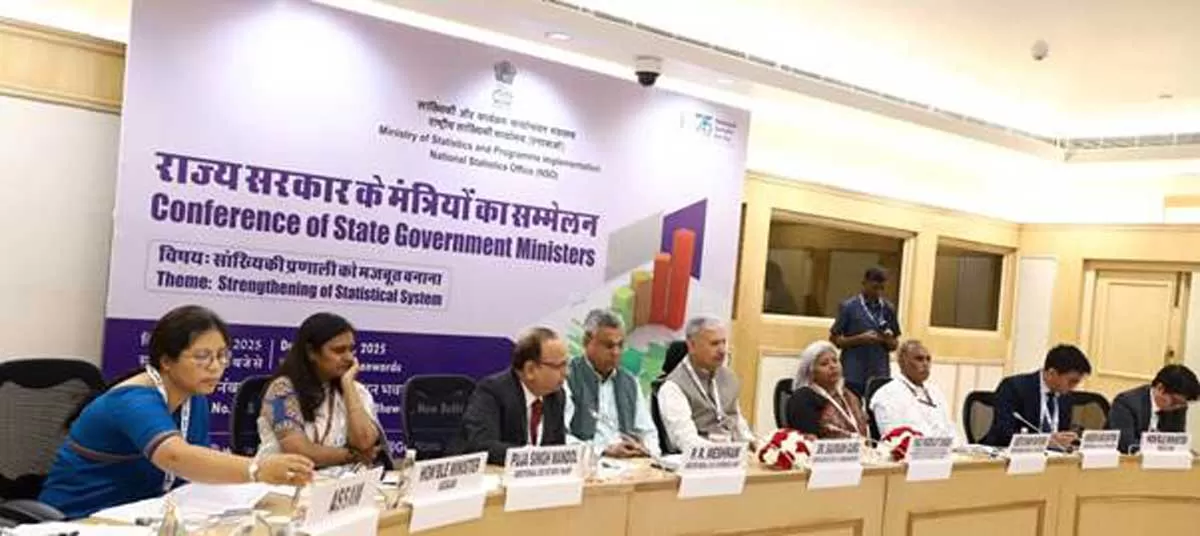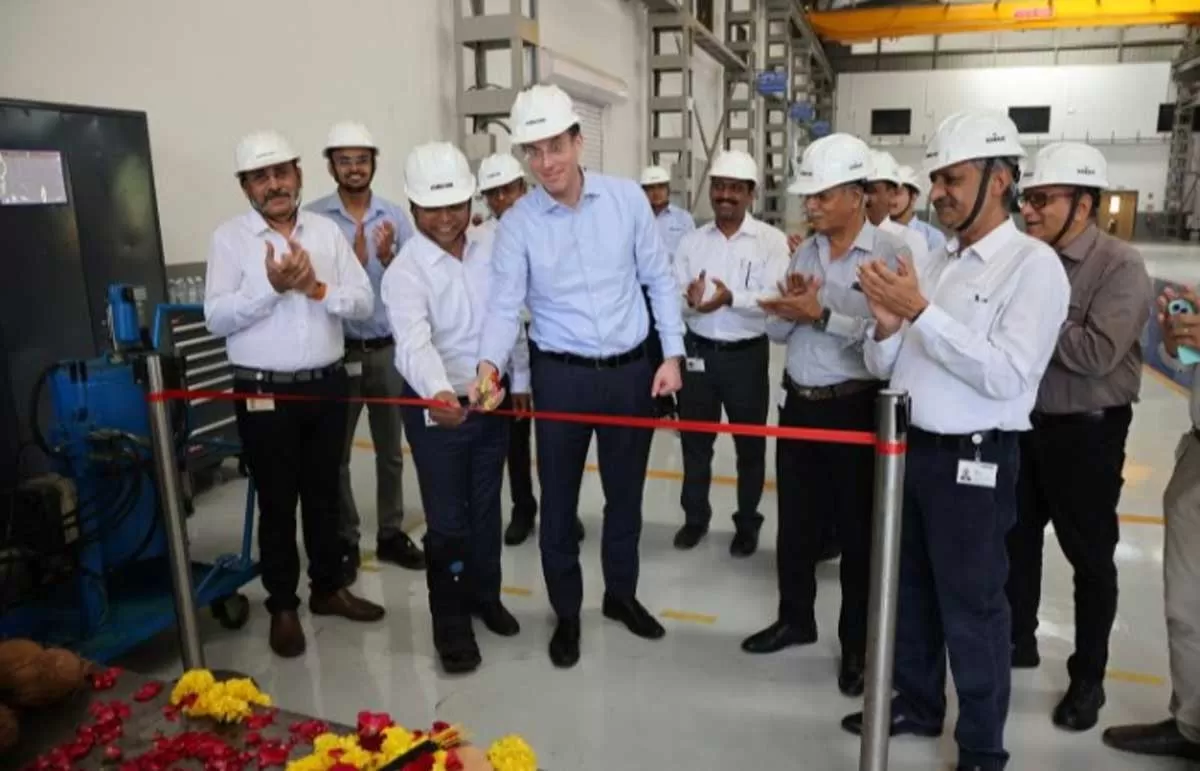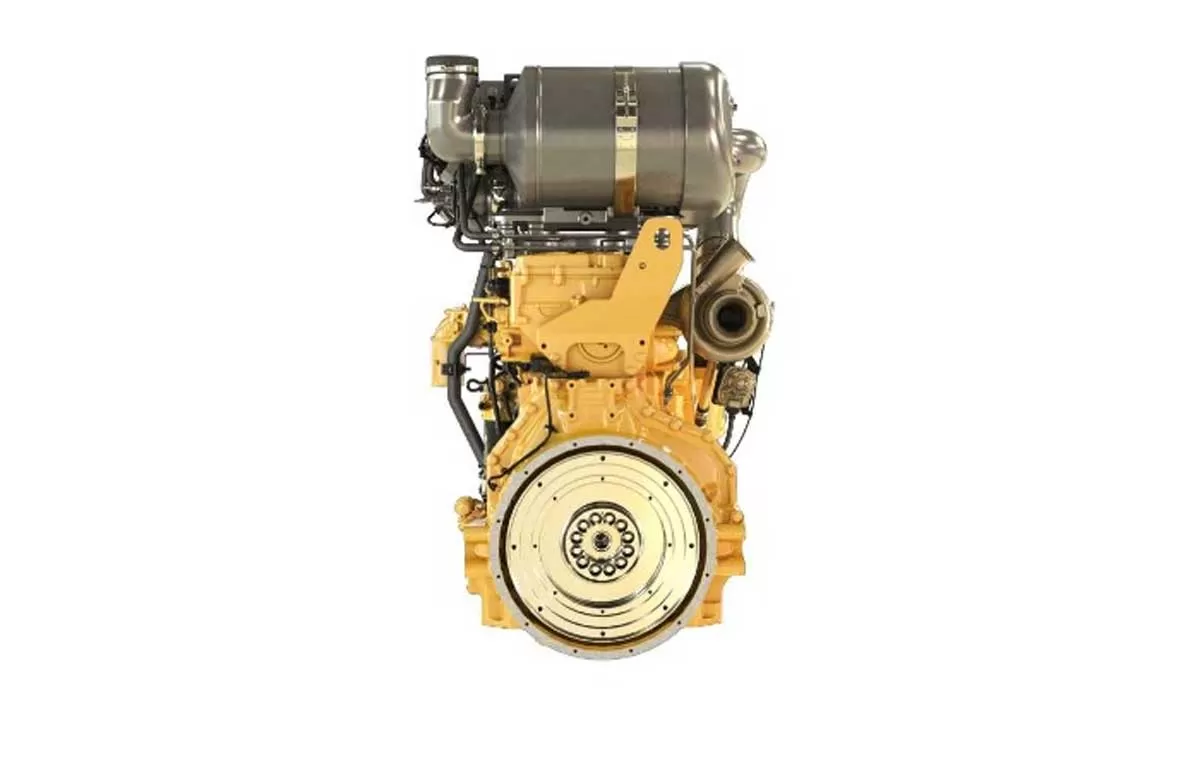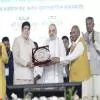Ministry of Statistics and Programme Implementation (MoSPI) organized a Conference of State Government Ministers on Strengthening of Statistical Systems on 5th April, 2025 at Vigyan Bhawan, New Delhi.
Rao Inderjit Singh, the Minister of State (Independent Charge), MoSPI, Ministry of Planning, and Minister of State (MoS) for the Ministry of Culture, chaired the Conference. In his inaugural address, he appreciated the participation and committed involvement of States / Union Territories (UTs) in the conference and underscored the indispensable role of reliable data in shaping effective policies and called for unified efforts to embrace innovation, foster coordination, and uphold transparency in statistical processes, in a continued journey towards attaining the vision of “Vikshit Bharat 2047” and invited cooperation from all the States/UTs to strengthen the national statistical system.
Dr Saurabh Garg, Secretary, MoSPI, emphasised the importance of robust statistical system for evidence-based policymaking. He highlighted key initiatives of MoSPI, including the Support for Statistical Strengthening (SSS) Scheme and appealed for participation in the National Sample Surveys (NSS). He stressed upon the need for having sub-state level estimates for more granularity. Concluding with a call for strengthened collaboration, he emphasized greater use of administrative and alternate data sources, use of modern technology in data collection, refining statistical frameworks to promote transparency, credibility, accountability, sustainable development and capacity building of States/UTs officials through NSSTA training programmes.
Nandita Gorlosa, Hon'ble Minister of Sports & Youth Welfare, Welfare of Minorities & Development and Public Works (Buildings & National Highways) Departments, Govt. of Assam ; Bijendra Prasad Yadav, Minister of Planning and Development, Govt of Bihar; Gaurav Gautam, Minister of Youth Empowerment and Entrepreneurship and Sports, Govt of Haryana; Radha Krishna Kishore, Minister, Department of Planning & Development, Govt. of Jharkhand; Dr Vanlalthlana, Minister, Department of School Education/Higher and Technical Education/Information and Public relations/Information and Communication Technology, Govt. of Mizoram; K K Vishnoi, Minister of Sports & Youth Affairs, Skill & Employment & Entrepreneurship Department, Government of Rajasthan; Bikash Debbarma, Minister, Planning (Statistics) Department, Government of Tripura; Suresh Kumar Khanna, Minister, Finance and Parliamentary Affairs, Govt of Uttar Pradesh; Saurabh Bahuguna, Minister of Minister of Animal Husbandry, Fisheries, Skill development & Employment, Protocol and Sugarcane Development, Govt. of Uttarakhand and Chandrima Bhattacharya, Minister of State, Department of Planning, Statistics and Programme Monitoring, Govt. of West Bengal participated in the conference.
The State Government Ministers/UT Administrators appreciated the Conference of State Government Ministers and suggested that this should be made a regular feature for better coordination and holistic development of the National Statistical System. They also highlighted the importance of producing relevant, accurate, and timely statistics at both the national and sub-national levels and emphasised on the key areas where deeper collaboration and partnership between the Centre and the States is crucial for strengthening both national and state statistical systems.
Additional Chief Secretary, Secretary (Planning), Special Secretary, Director (DES) and other senior level officers from States/ UTs also participated in the conference and made their valuable suggestions.
The workshop featured presentations on key aspects of statistical development and reforms, focusing on strengthening the national statistical system. Discussions covered the Support for Statistical Strengthening (SSS) Scheme, State participation in the National Sample Surveys (NSS) for district-level and advancements in sub-state level estimates for GDP, IIP, and CPI. Key topics also included statistical standards like NMDS 2.0 and unique identifiers, capacity building, innovation, and sub-national SDG monitoring frameworks. The focus of the conference was also on environment accounts, data dissemination through e-Sankhyiki, review of MPLADS and monitoring of major infrastructure projects, alongside major statistical reforms and achievements.


















